Gambling is a fascinating world of risks and rewards, and some people are so good at it that they make a living out of it. Becoming a professional gambler is not an easy task, and it requires a lot of dedication, skill, and patience.
In this article, we’ll guide you through the process of how to become a professional gambler, and we’ll use reliable sources to provide you with expert tips and advice.
How to Become a Professional Gambler: A Comprehensive Guide
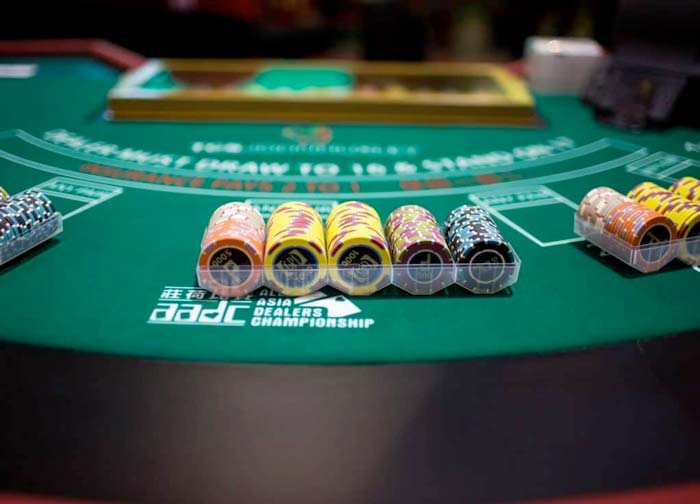
Start with a Bankroll
To become a professional gambler, you need to have a significant amount of money that you can afford to lose. This money is called your bankroll, and it’s essential to have one if you want to make a living out of gambling. The experts at Casino.org recommend having a bankroll of at least 50 times the minimum bet.
One of the essential steps towards becoming a professional gambler is to start with a bankroll. A bankroll is the amount of money you set aside specifically for gambling. It is essential to manage your bankroll properly to ensure that you don’t run out of money and to increase your chances of winning.
Here’s a complete guide on how to start with a bankroll:
Determine your budget: The first step is to determine how much money you can afford to lose without affecting your daily life. It is recommended that you start with a bankroll that is at least 50 times the amount you plan to bet in a single session.
Separate your bankroll from your regular funds: Once you have determined your budget, it is important to separate your bankroll from your regular funds. You should create a separate account or wallet to manage your gambling funds. This will help you to track your expenses and avoid overspending.
Set betting limits: You should set limits on the amount you will bet on each game. This will help you to manage your bankroll effectively and avoid losing too much money in a single session.
Practice bankroll management: Effective bankroll management involves setting a loss limit and sticking to it. This means that you should stop gambling once you have reached your loss limit for the day. You should also avoid chasing losses by increasing your bets to recoup your losses.
Keep track of your bankroll: You should keep track of your bankroll and monitor your wins and losses. This will help you to evaluate the effectiveness of your strategy and make necessary adjustments.
Starting with a bankroll is an essential step towards becoming a professional gambler. It involves determining your budget, separating your bankroll from your regular funds, setting betting limits, practicing bankroll management, and keeping track of your bankroll. By following these steps, you can manage your gambling funds effectively and increase your chances of winning.
Choose Your Game

You can’t become a professional gambler if you don’t know which game you’re good at. You need to choose a game that you’re skilled in, and that has a low house edge. Games like blackjack, poker, and sports betting are popular among professional gamblers because they require a combination of skill and strategy.
Choosing the right game is a crucial step towards becoming a professional gambler. Each game has its own set of rules, odds, and strategies. It is important to choose a game that you enjoy playing and have a good understanding of its rules and strategies. Here’s a complete guide on how to choose your game:
- Understand the odds: Each game has its own odds of winning. It is important to understand the odds of each game before you start playing. This will help you to determine the best game to play based on your budget and the likelihood of winning.
- Research the game: Before you start playing a game, you should research it thoroughly. Read books, watch tutorials, and practice the game for free online. This will help you to understand the rules, strategies, and nuances of the game.
- Play games that you enjoy: It is important to choose a game that you enjoy playing. This will keep you motivated and make the process more enjoyable. If you don’t enjoy the game, you are less likely to put in the effort required to become a professional gambler.
- Consider your bankroll: Your bankroll will also determine the games you can play. Some games require a larger bankroll than others. You should choose a game that fits your bankroll and budget.
- Evaluate the competition: You should also evaluate the competition before you start playing. If the competition is too tough, it may be difficult to make a profit. On the other hand, if the competition is weak, you may have a better chance of winning.
Choosing the right game is an important step towards becoming a professional gambler. It involves understanding the odds, researching the game, playing games that you enjoy, considering your bankroll, and evaluating the competition. By following these steps, you can choose a game that suits your skills, preferences, and budget, and increase your chances of winning.
Learn the Game Inside Out
Once you’ve chosen your game, it’s time to learn everything about it. Read books, watch videos, attend classes, and practice as much as you can. You need to know the game inside out, including the rules, strategies, and odds.
To become a professional gambler, it’s essential to learn the game inside out. This means understanding all the rules, strategies, and nuances of the game. Here’s a complete guide on how to learn the game inside out:
- Read books: Start by reading books about the game you want to master. There are many books available that cover the rules, strategies, and other important aspects of the game. Look for books written by experienced players or experts in the field.
- Watch tutorials: Watching tutorials can also help you learn the game. Many websites offer video tutorials that cover the basics of the game, as well as more advanced strategies.
- Practice online: Once you have a good understanding of the rules, start practicing the game online. Many online casinos offer free versions of popular games, which allow you to practice without risking any money. This will give you an opportunity to hone your skills and test out different strategies.
- Join a forum: Joining a forum can also be helpful. Many online forums are dedicated to specific games, and they provide a space for players to share tips, strategies, and other insights. This can be a great way to learn from experienced players and get feedback on your own play.
- Hire a coach: If you’re serious about becoming a professional gambler, consider hiring a coach. A coach can provide personalized feedback on your play, as well as help you develop a winning strategy. Look for a coach who has experience in the game you want to master.
Learning the game inside out is essential if you want to become a professional gambler. It involves reading books, watching tutorials, practicing online, joining a forum, and hiring a coach. By following these steps, you can gain a deep understanding of the game, develop winning strategies, and increase your chances of success.
Develop a Strategy
To be successful in gambling, you need to have a strategy. Your strategy should be based on your bankroll, your skills, and the game you’re playing. Don’t rely on luck or emotions, but instead, use your strategy to make rational decisions.
Developing a strategy is a crucial step towards becoming a professional gambler. It’s not just about placing bets randomly, but it’s about making calculated decisions based on your analysis of the game. The first step in developing a strategy is to choose the right game for you. You must choose a game that you are comfortable with and have knowledge about. This will help you to focus on the game and improve your chances of winning.
Once you have selected a game, the next step is to understand the rules and practice playing. This will help you to familiarize yourself with the game and develop your skills. You can start by playing free casino games or with low stakes to gain experience.
After you have practiced enough, you need to develop a system that works for you. This system should be based on your strengths and weaknesses as a gambler. You should set a budget and stick to it to avoid overspending. You should also set achievable goals and track your progress to evaluate the effectiveness of your strategy.
Another important aspect of developing a strategy is to be patient and disciplined. You should not let emotions cloud your judgment when making decisions. You should also be willing to adapt and make changes to your strategy as necessary.
In conclusion, developing a strategy is a crucial step towards becoming a professional gambler. It requires choosing the right game, understanding the rules, practicing, developing a system, setting a budget, and being patient and disciplined. By following these steps, you can increase your chances of winning and turn gambling into a profitable career.
Manage Your Bankroll
Managing your bankroll is crucial if you want to become a professional gambler. You need to set limits on how much you’re willing to bet, and you need to stick to those limits. Don’t chase your losses, but instead, take a break and come back when you’re feeling more confident.
One of the most important aspects of becoming a professional gambler is managing your bankroll. Proper bankroll management can mean the difference between success and failure. Here’s a complete guide on how to manage your bankroll:
- Set a budget: The first step in managing your bankroll is to set a budget. Determine how much money you can afford to lose without it affecting your life or finances. This will help you avoid chasing losses and making impulsive decisions.
- Establish a bankroll: Once you’ve set a budget, establish a bankroll. Your bankroll is the amount of money you’re willing to risk playing the game. It’s important to only gamble with money you can afford to lose and to never dip into other funds to continue playing.
- Determine your betting unit: Next, determine your betting unit. This is the amount of money you will bet on each hand or spin. A general rule of thumb is to bet no more than 1-2% of your bankroll per bet. This will help you stretch your bankroll and avoid losing all your money quickly.
- Set win and loss limits: It’s important to set win and loss limits before you start playing. A win limit is the amount of money you want to win before quitting, while a loss limit is the amount of money you’re willing to lose before quitting. Once you reach either limit, it’s time to stop playing.
- Avoid chasing losses: One of the biggest mistakes gamblers make is chasing losses. If you’ve hit your loss limit, it’s time to walk away. Don’t try to win back your losses by continuing to play. This will only lead to further losses and can quickly deplete your bankroll.
- Keep track of your wins and losses: Finally, keep track of your wins and losses. This will help you stay accountable and make adjustments to your betting strategy as needed.
Managing your bankroll is crucial if you want to become a professional gambler. Set a budget, establish a bankroll, determine your betting unit, set win and loss limits, avoid chasing losses, and keep track of your wins and losses. By following these steps, you can maximize your chances of success and avoid losing all your money in the process.
Keep Records
Professional gamblers keep records of their wins and losses. They use these records to track their progress, analyze their performance, and make adjustments to their strategy. Keeping records will help you identify your strengths and weaknesses, and it will also help you manage your bankroll more effectively.
Keeping accurate records of your gambling activity is an essential part of becoming a professional gambler. It allows you to track your progress, analyze your results, and make adjustments to your strategy as needed. Here’s a complete guide on how to keep records:
- Keep track of your wins and losses: The first step in keeping records is to track your wins and losses. This includes the amount of money you’ve won or lost, the date and time of the game, and the type of game you played. You can use a spreadsheet or a notebook to record this information.
- Calculate your ROI: Once you’ve tracked your wins and losses, you can calculate your return on investment (ROI). This is the percentage of your bankroll that you’ve won or lost over a certain period of time. To calculate your ROI, divide your total winnings by your total bets and multiply by 100.
- Analyze your results: After calculating your ROI, analyze your results to determine what’s working and what’s not. Look for patterns in your wins and losses and make adjustments to your strategy as needed. For example, if you’re consistently losing money playing a certain game, it may be time to try a different game or change your betting strategy.
- Set goals: Set goals for yourself based on your ROI and adjust them as you see fit. For example, if you have a 10% ROI, you may want to set a goal of increasing it to 15% within a certain timeframe.
- Keep track of expenses: It’s important to keep track of your expenses as well. This includes the cost of travel, lodging, and meals if you’re traveling to play. You can deduct these expenses from your winnings when filing your taxes.
- Stay organized: Finally, it’s important to stay organized and keep your records up to date. Set aside time each week to update your records and review your progress. This will help you stay on track and make informed decisions about your gambling activity.
Keeping accurate records is essential if you want to become a professional gambler. Keep track of your wins and losses, calculate your ROI, analyze your results, set goals, keep track of expenses, and stay organized. By following these steps, you can maximize your chances of success and make informed decisions about your gambling activity.
Conclusion:
Becoming a professional gambler is not easy, but it’s possible if you have the dedication, skill, and patience. Start with a bankroll, choose your game, learn everything about it, develop a strategy, manage your bankroll, and keep records. With hard work and discipline, you can turn gambling into a profitable career.
FAQ:
Yes, it’s legal to become a professional gambler, but you need to follow the laws and regulations of your country or state.
No, you need a bankroll to become a professional gambler. Without a bankroll, you won’t be able to withstand the ups and downs of gambling.
No, you don’t need to be good at math to become a professional gambler, but you need to understand the basic principles of probability and odds.
Top 10 Famous US Gamblers
Gambling has been a part of American culture for a long time, and many famous people have made their fortunes by gambling. In this article, we’ll introduce you to the top 10 famous US gamblers, who have become legends in the world of gambling. From poker players to sports bettors, these individuals have shown that gambling can be a profitable career if done right.
Phil Ivey
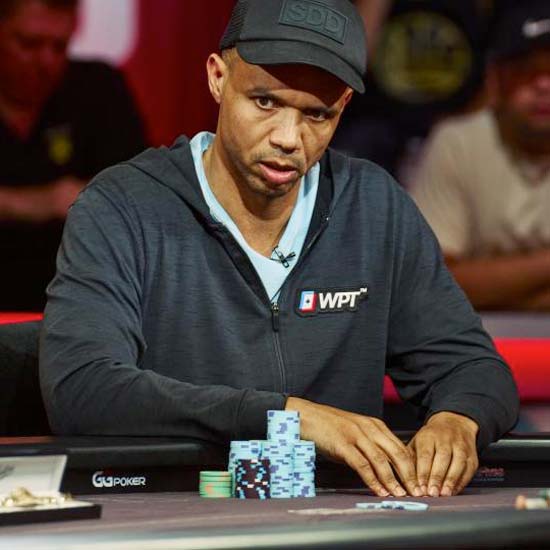
Phil Ivey is considered one of the best poker players of all time, with ten World Series of Poker bracelets and a net worth of over $100 million. He’s known for his ability to read his opponents and make smart decisions, and he’s also a skilled baccarat player.
Doyle Brunson
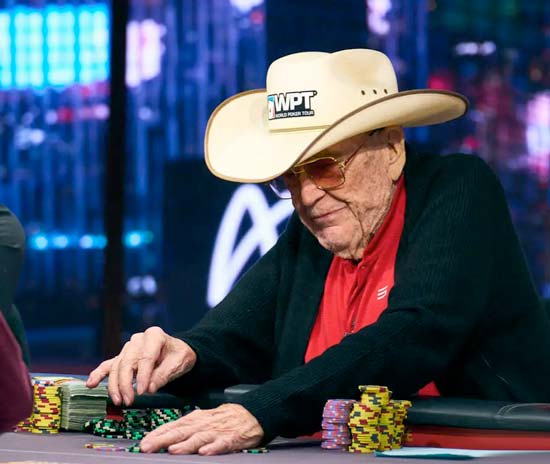
Doyle Brunson is a living legend in the world of poker, with ten World Series of Poker bracelets and two Main Event wins. He’s known for his aggressive style of play and his ability to bluff his opponents. He’s also written several books on poker strategy.
Edward Thorp
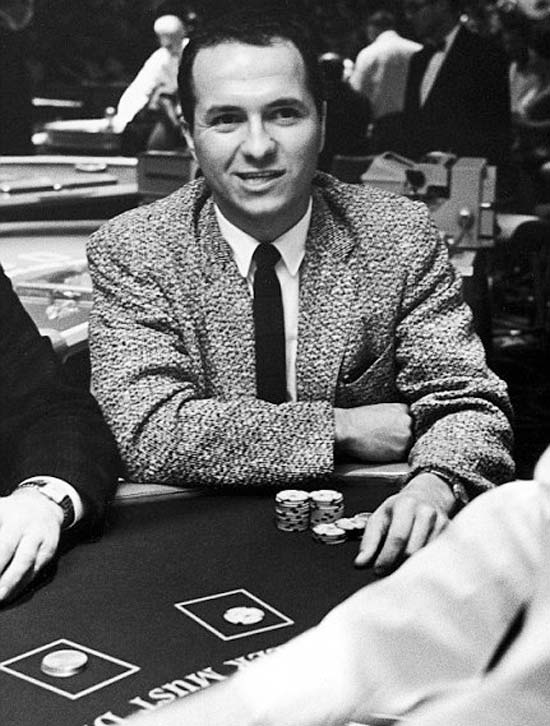
Edward Thorp is a mathematician and a blackjack player, who is known for his book “Beat the Dealer“, which introduced the concept of card counting. He’s also a hedge fund manager and a pioneer in the field of quantitative finance.
Billy Walters
Billy Walters is a sports bettor who’s known for his ability to pick winners. He’s made millions of dollars by betting on sports, and he’s also been involved in several legal battles with the government over his gambling activities.
Dan Bilzerian
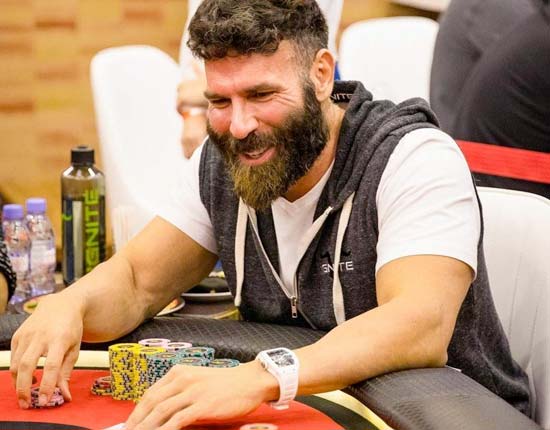
Dan Bilzerian is a social media influencer and a professional poker player, who’s known for his extravagant lifestyle and his love for gambling. He’s won millions of dollars playing poker and has also been involved in several controversial incidents.
Jennifer Harman
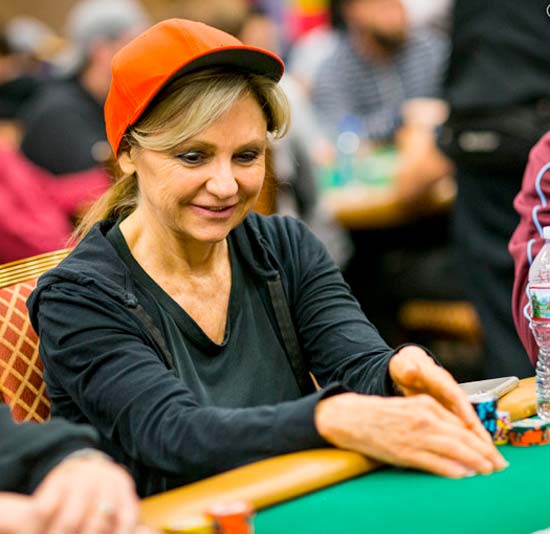
Jennifer Harman is one of the best female poker players in the world, with two World Series of Poker bracelets and over $2.7 million in tournament earnings. She’s known for her aggressive style of play and her ability to read her opponents.
Stu Ungar
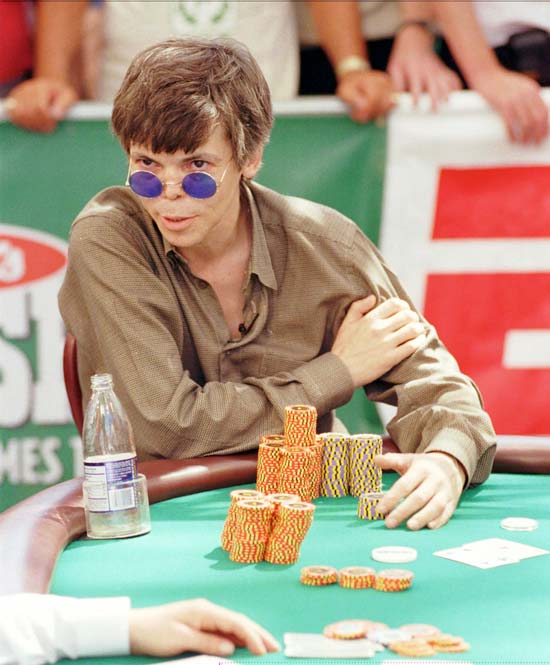
Stu Ungar was a legendary poker player, who’s considered one of the best players of all time. He won three World Series of Poker Main Events and had a net worth of over $30 million. Unfortunately, he struggled with drug addiction and died at the age of 45.
David Sklansky

David Sklansky is a professional poker player and a writer, who’s known for his books on poker strategy. He’s won three World Series of Poker bracelets and has a net worth of over $10 million.
Phil Hellmuth
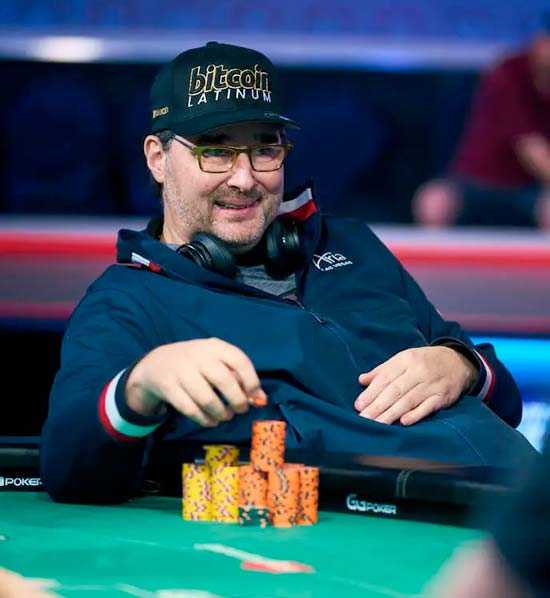
Phil Hellmuth is a professional poker player, who’s won a record 15 World Series of Poker bracelets. He’s known for his temperamental personality and his ability to make big bluffs.
Benny Binion
Benny Binion was a legendary casino owner and a pioneer in the world of gambling. He’s known for creating the World Series of Poker and for his famous casino, the Horseshoe Casino in Las Vegas.
Conclusion:
These top 10 famous US gamblers have shown that gambling can be a profitable and exciting career if done right. From poker players to sports bettors, these individuals have made millions of dollars by taking calculated risks and making smart decisions. They’ve also become legends in the world of gambling and have inspired many aspiring gamblers to follow in their footsteps.












